
Alfama: The Heartbeat of Lisbon's Old Soul
Alfama, Lisbon's oldest and most enchanting neighborhood, is a labyrinth of narrow streets, cobblestone alleys, and historic charm. Nestled between the São Jorge Castle and the Tejo River, Alfama offers visitors a glimpse into the city's rich past with its well-preserved medieval architecture and traditional Fado music echoing through the night. Wander through Alfama's winding streets to discover quaint squares, pastel-colored houses adorned with vibrant azulejos (ceramic tiles), and hidden courtyards. Every corner reveals a piece of history, from ancient churches like the Lisbon Cathedral to the iconic Miradouro de Santa Luzia, offering panoramic views of the city and the river. Alfama is not just about history; it is also a living, breathing neighborhood where locals gather in cozy taverns to share a meal and a song. The aroma of grilled sardines fills the air, especially during the lively Santo António Festival. With its authentic charm and vibrant culture, Alfama invites you to slow down, explore, and soak in the timeless beauty of Lisbon.
Local tips in Alfama
- Wear comfortable shoes. Alfama’s cobblestone streets can be uneven and steep.
- Visit early in the morning or late in the evening to avoid crowds and enjoy a more peaceful experience.
- Take a guided walking tour to uncover hidden gems and learn about Alfama's rich history.
- Experience a Fado performance in one of Alfama’s traditional taverns for an authentic taste of Portuguese culture.
- Don’t miss the Feira da Ladra flea market on Tuesdays and Saturdays for unique souvenirs and antiques.
Alfama: The Heartbeat of Lisbon's Old Soul
Alfama, Lisbon's oldest and most enchanting neighborhood, is a labyrinth of narrow streets, cobblestone alleys, and historic charm. Nestled between the São Jorge Castle and the Tejo River, Alfama offers visitors a glimpse into the city's rich past with its well-preserved medieval architecture and traditional Fado music echoing through the night. Wander through Alfama's winding streets to discover quaint squares, pastel-colored houses adorned with vibrant azulejos (ceramic tiles), and hidden courtyards. Every corner reveals a piece of history, from ancient churches like the Lisbon Cathedral to the iconic Miradouro de Santa Luzia, offering panoramic views of the city and the river. Alfama is not just about history; it is also a living, breathing neighborhood where locals gather in cozy taverns to share a meal and a song. The aroma of grilled sardines fills the air, especially during the lively Santo António Festival. With its authentic charm and vibrant culture, Alfama invites you to slow down, explore, and soak in the timeless beauty of Lisbon.
Iconic landmarks you can’t miss
Castelo de S. Jorge
Explore the majestic Castelo de S. Jorge, a historic castle in Lisbon offering breathtaking views, rich history, and a captivating archaeological museum.
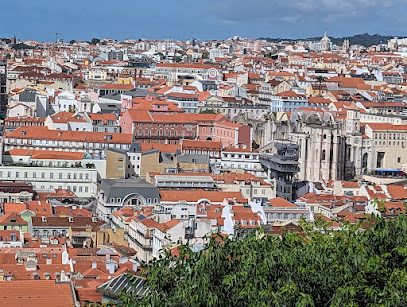
Miradouro de Santa Luzia
Experience stunning views of Lisbon and the Tagus River at Miradouro de Santa Luzia, a scenic spot perfect for relaxation and photography.
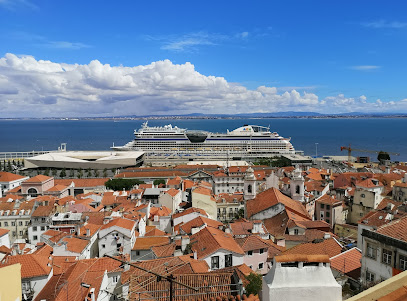
Lisbon Cathedral
Discover the timeless beauty of Lisbon Cathedral, a stunning blend of Romanesque and Gothic architecture in the heart of Portugal's vibrant capital.
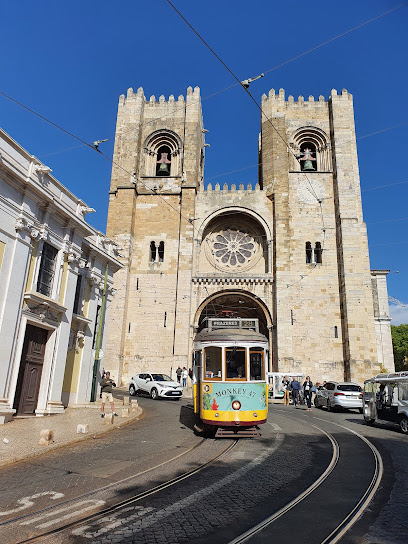
Arco do Castelo
Explore Lisbon's historic Arco do Castelo, a stunning archway leading to the Castelo de São Jorge with breathtaking views and rich architectural heritage.
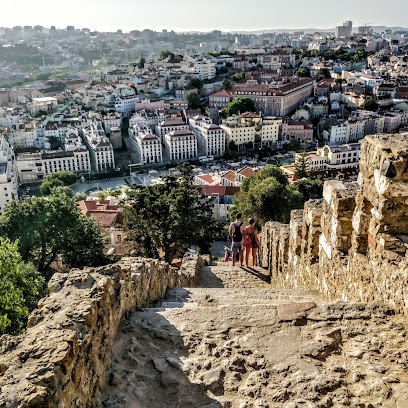
Old Alfama Square
Explore Old Alfama Square in Lisbon, a historic gem filled with culture, music, and breathtaking views, perfect for a memorable travel experience.
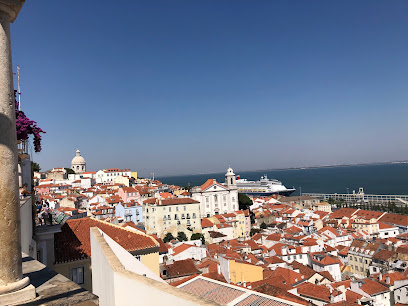
Statue of Saint Vicente
Explore the Statue of Saint Vicente, a historical landmark in Lisbon, symbolizing the city's rich cultural heritage and breathtaking views.
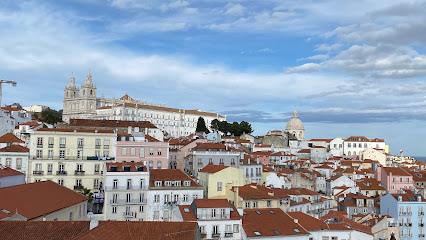
Observation Deck
Discover breathtaking views and vibrant cityscapes at Lisbon's Observation Deck, a must-visit spot for every traveler seeking scenic beauty.
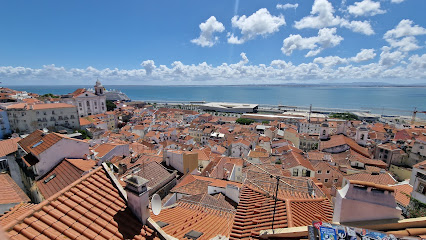
Beco da Bicha
Explore Beco da Bicha, Lisbon's colorful alley that showcases vibrant street art and celebrates LGBTQ+ culture in the heart of the city.
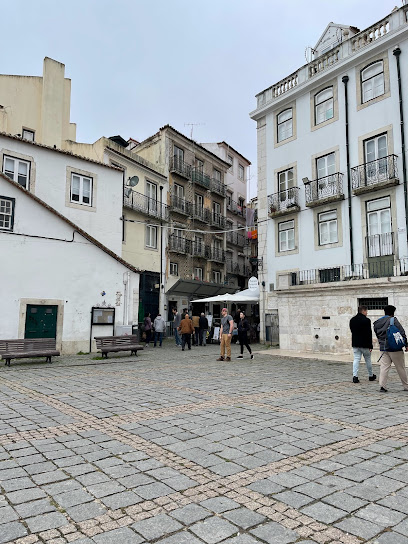
Urinol
Explore Urinol, a unique cultural gem in Lisbon, blending history, art, and the vibrant local vibe for an unforgettable experience.
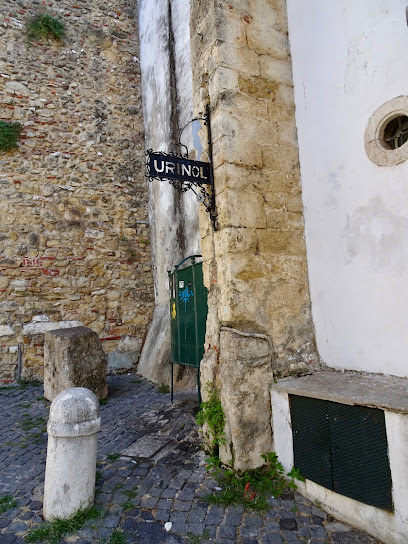
Beco dos Loios
Uncover the beauty and charm of Beco dos Loios, a hidden gem in Lisbon filled with vibrant street art, history, and delightful local flavors.
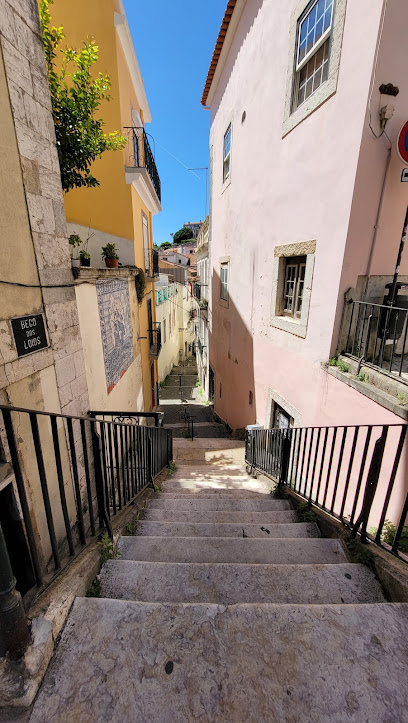
Unmissable attractions to see
Lisbon Cathedral
Discover the stunning Lisbon Cathedral, a historical landmark that showcases Gothic architecture and the rich heritage of Portugal.
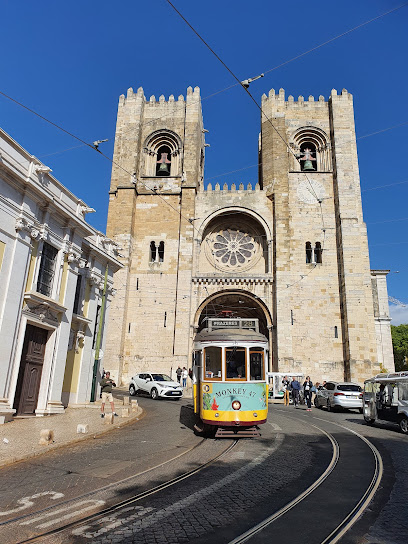
Miradouro das Portas do Sol
Experience the stunning vistas of Lisbon at Miradouro das Portas do Sol, a scenic observation deck perfect for memorable views and photography.
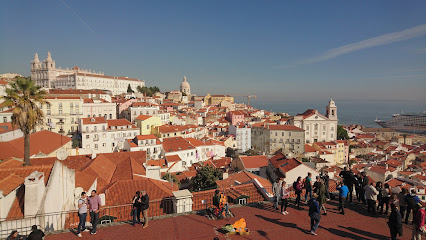
Chafariz d'El-Rei
Discover the charm of Chafariz d'El-Rei, a historical fountain in Lisbon blending stunning architecture with the city's rich culture.
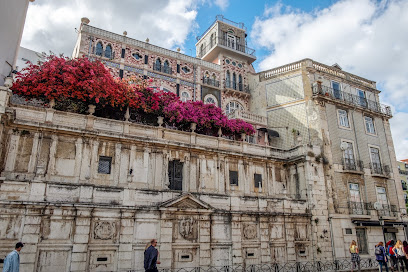
Old Alfama Square
Explore the historic and vibrant Old Alfama Square in Lisbon, a cultural hub filled with charming streets, delightful cafes, and rich Portuguese heritage.
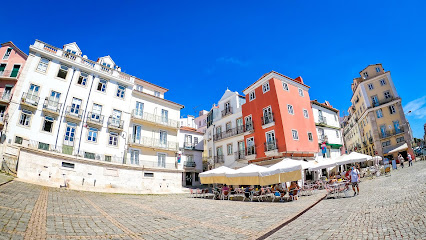
Chafariz das Moiras
Discover Chafariz das Moiras, a serene oasis in Lisbon's Alfama, blending history and beauty for an unforgettable tourist experience.
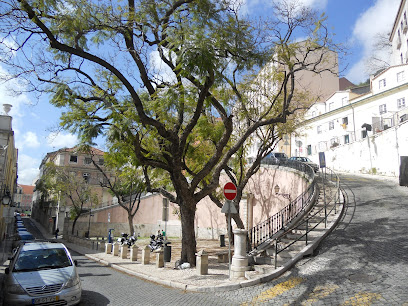
Observation Deck
Experience stunning panoramic views of Lisbon at the Observation Deck, a must-visit for every traveler exploring Portugal's enchanting capital.
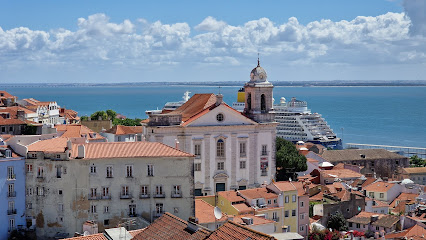
Beco da Bicha
Discover Beco da Bicha, Lisbon's vibrant alleyway celebrating LGBTQ+ culture through stunning art and community spirit.
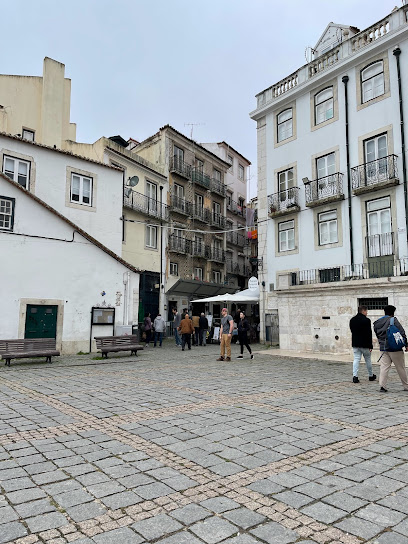
Urinol
Explore the unique charm of Urinol in Lisbon, where art meets humor in a delightful tourist attraction.
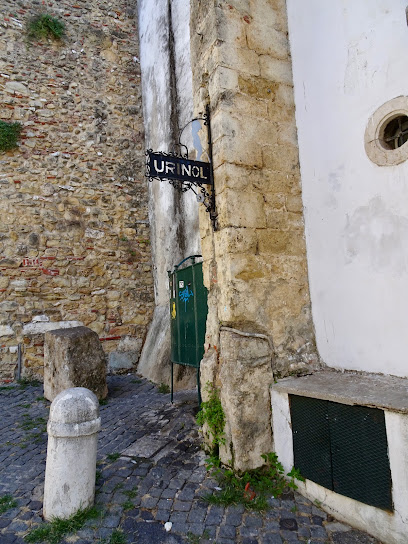
Beco dos Loios
Explore the enchanting Beco dos Loios in Lisbon, where vibrant street art meets rich history in a charming alleyway.
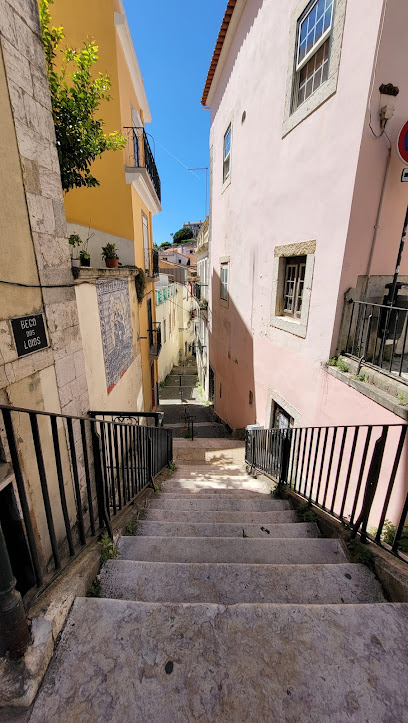
Essential places to dine
Augusto Lisboa
Discover Augusto Lisboa: A charming brunch destination in Lisbon offering fresh ingredients and delightful flavors in a cozy setting.
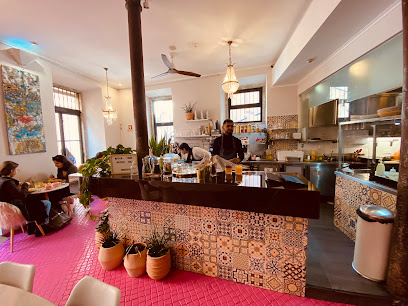
Alfama Cellar
Experience authentic Portuguese flavors at Alfama Cellar in Lisbon’s historic district – where tradition meets modern culinary artistry.
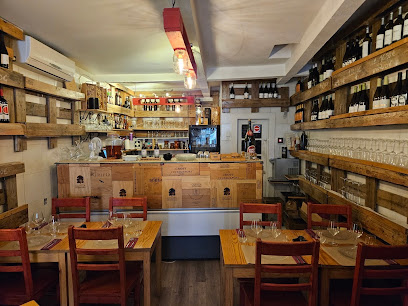
Casa da Tia Helena
Discover authentic Portuguese flavors at Casa da Tia Helena, where tradition meets comfort in the heart of Lisbon.
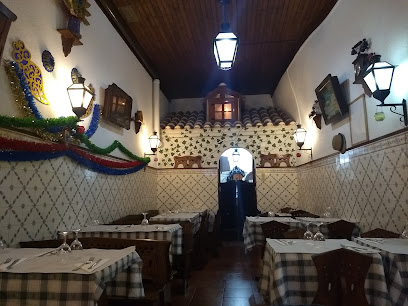
O BECO - A tradição do bacalhau
Discover the authentic taste of Portugal at O Beco, where bacalhau takes center stage in a cozy and traditional setting.
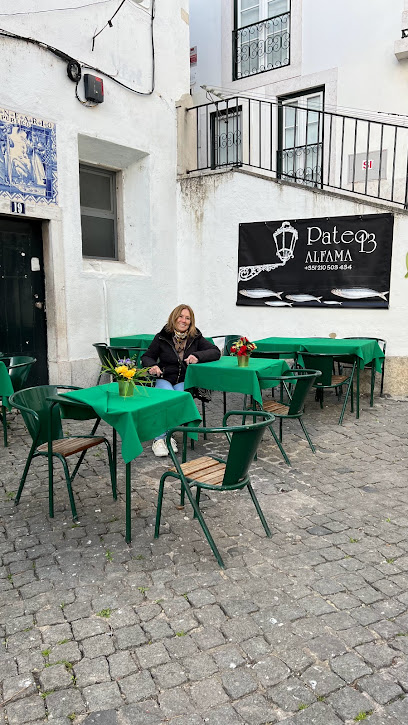
Parreirinha de Alfama
Experience authentic Portuguese cuisine with Fado music at Parreirinha de Alfama in Lisbon's historic Alfama district.
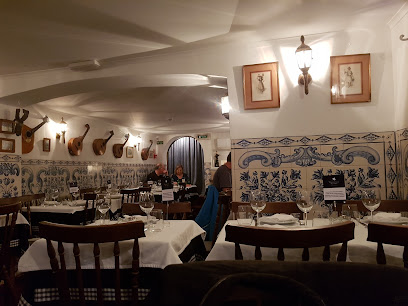
Antù Alfama
Discover Antù Alfama: A delightful brunch restaurant in Lisbon's historic district, serving traditional Portuguese dishes with a modern flair.
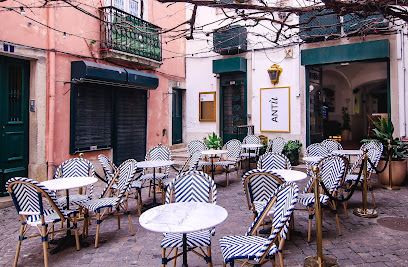
Morgadinha de Alfama
Discover the heart of Portuguese cuisine at Morgadinha de Alfama – where tradition meets taste in every dish.
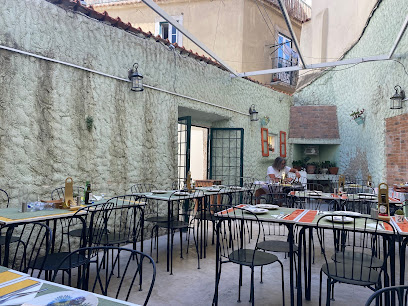
Fama d'Alfama
Experience authentic Portuguese cuisine accompanied by enchanting live Fado performances at Fama d'Alfama in Lisbon.
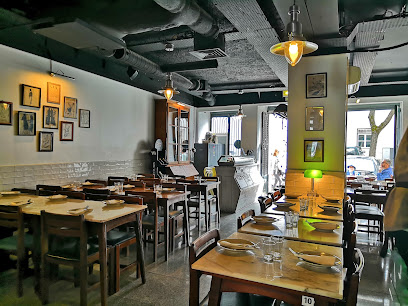
Esquina de Alfama
Experience authentic Portuguese cuisine at Esquina de Alfama in Lisbon's historic neighborhood, where every dish tells a flavorful story.
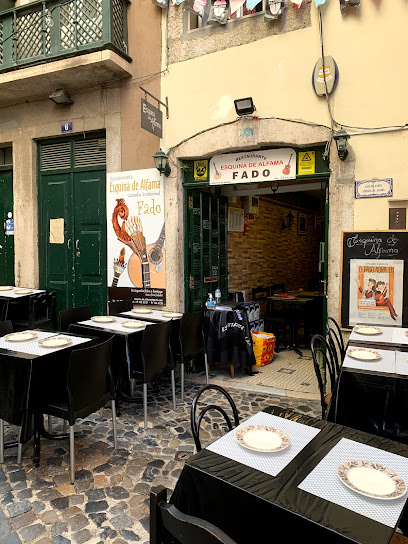
Barracão de Alfama
Experience authentic Portuguese cuisine in Lisbon’s historic Alfama district at Barracão de Alfama.
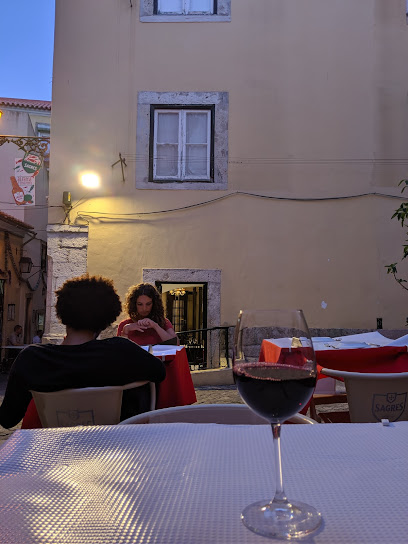
Markets, malls and hidden boutiques
Alfama Shop - O Passeio da D. Sardinha e do Sr. Bacalhau
Explore Alfama Shop, your go-to destination for authentic Portuguese souvenirs and unique gifts in the heart of Lisbon's historic district.
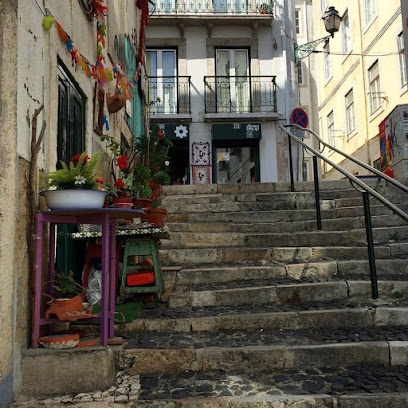
Pátria Rústica Alfama
Explore the heart of Lisbon at Pátria Rústica Alfama, where authentic Portuguese crafts and souvenirs await every visitor.
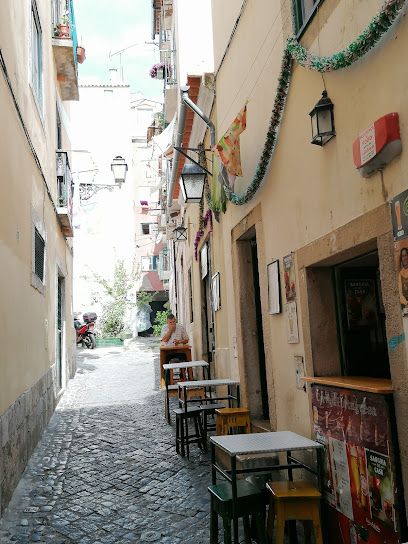
Ai Maria
Discover Ai Maria in Lisbon: Your go-to destination for authentic Portuguese gifts, artisanal cheeses, and unique fashion accessories.
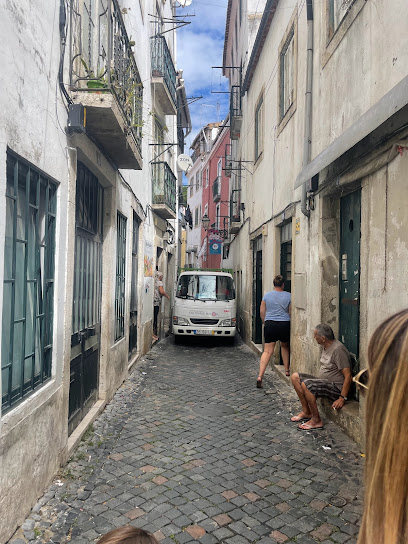
Oficina 32
Explore Oficina 32 in Lisbon for unique handmade gifts and artisanal treasures that capture the essence of Portuguese craftsmanship.
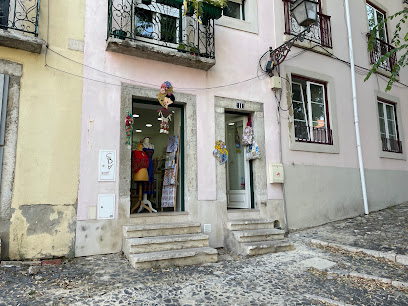
Alfama Souvenir
Discover the essence of Lisbon at Alfama Souvenir, where handcrafted treasures await to bring a piece of Portugal home with you.
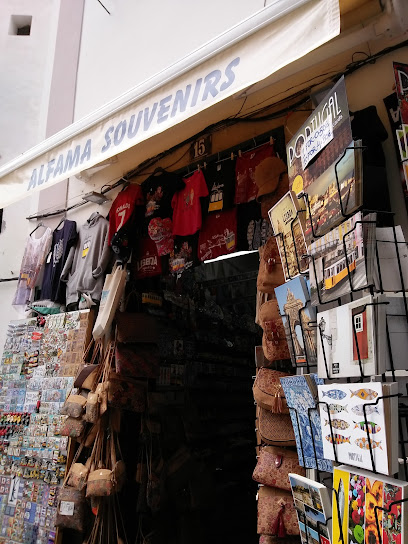
Alfama Gift & Cork Shop
Explore the Alfama Gift & Cork Shop for authentic Portuguese souvenirs and unique gifts that capture the essence of Lisbon's culture and artistry.
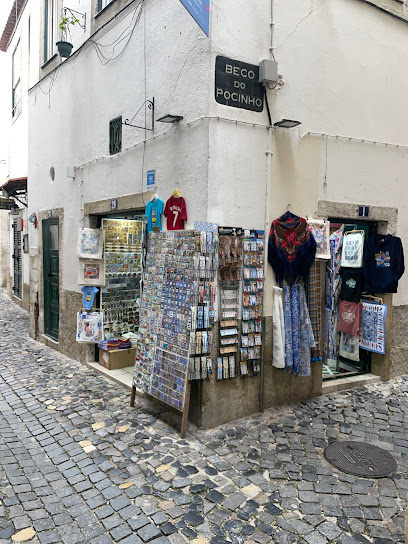
Loja do souvenir
Explore Loja do Souvenir in Lisbon for unique handcrafted gifts that capture the heart of Portuguese culture and craftsmanship.
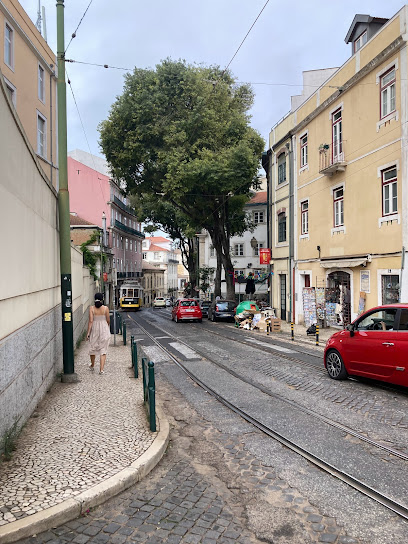
As coisas de Alberto
Explore As coisas de Alberto in Lisbon for unique souvenirs and local crafts that capture the spirit of Portugal.
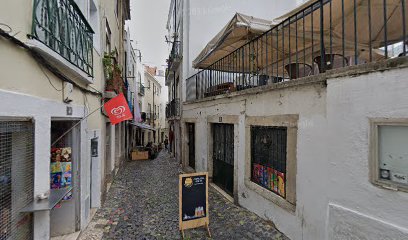
Castelo Souvenir Shop
Explore the charm of Lisbon at Castelo Souvenir Shop, where unique gifts and local treasures await every traveler.
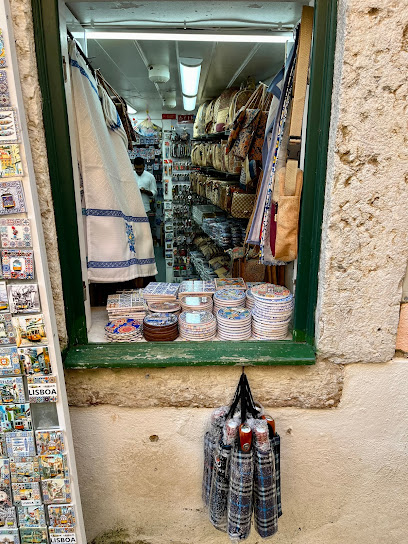
souvenir shop
Discover unique souvenirs and local treasures in Lisbon's charming souvenir shop, capturing the city's spirit in every handcrafted item.
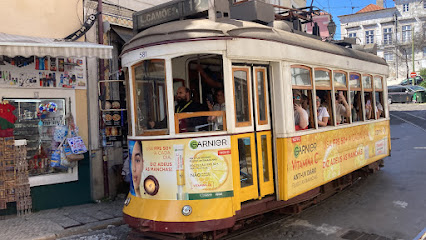
Essential bars & hidden hideouts
Crafty Corner
Discover Crafty Corner in Lisbon—your go-to spot for exquisite craft beers and a delightful brunch experience.
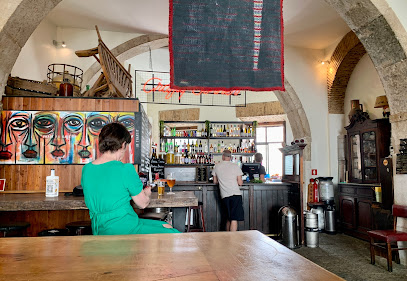
Madeira Pura - Poncha House
Experience the authentic taste of Madeira at Madeira Pura - Poncha House, Lisbon's vibrant bar specializing in local flavors and culture.
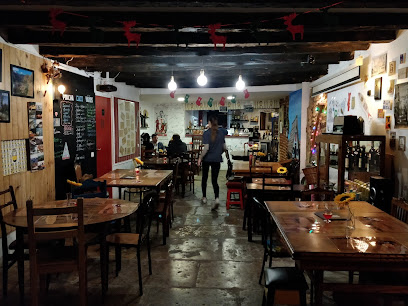
Estrela do Minho
Discover the vibrant flavors of Portugal at Estrela do Minho, a charming bar in Lisbon serving authentic tapas and fine wines.
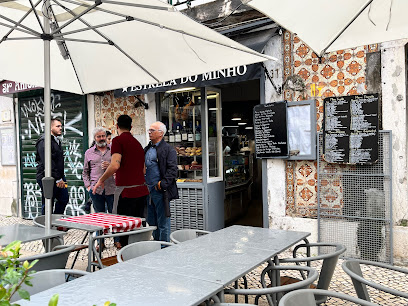
Típica de Alfama
Experience the authentic flavors of Lisbon at Típica de Alfama, a charming bar in the heart of the historic Alfama district offering affordable drinks and snacks.
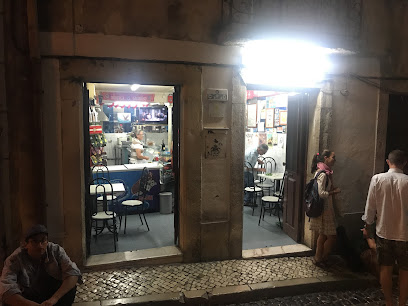
Shoes n´Booze Bar
Experience the vibrant nightlife of Lisbon at Shoes n' Booze Bar, where innovative cocktails and delectable tapas create an unforgettable atmosphere.
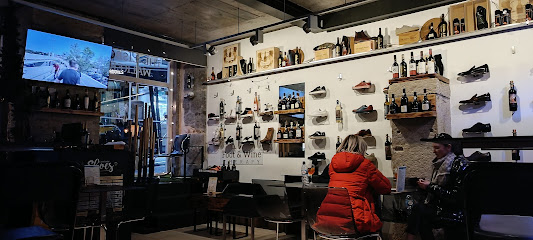
Terrasse Alfama
Discover the charm of Terrasse Alfama, a delightful bar in Lisbon's Alfama district, perfect for enjoying drinks and stunning views.
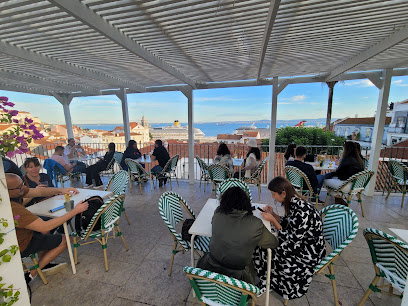
Memmo Hotel Bar
Experience the vibrant nightlife of Lisbon at Memmo Hotel Bar, where spectacular views meet exquisite cocktails and a cozy atmosphere.
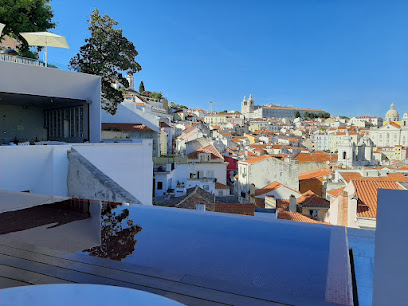
Tasca do Sr. Matos
Discover the heart of Lisbon at Tasca do Sr. Matos, where traditional flavors and vibrant atmosphere come together for an unforgettable experience.
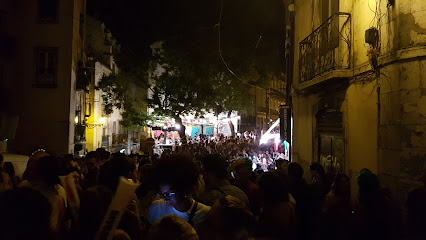
Ginjinha Castelo
Discover the authentic taste of Lisbon at Ginjinha Castelo, where tradition and flavor blend in every sip of delicious cherry liqueur.
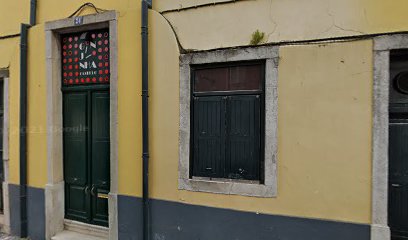
Manifesto Bar & Lounge
Discover the vibrant charm of Lisbon at Manifesto Bar & Lounge, where delightful drinks and a welcoming atmosphere await you.
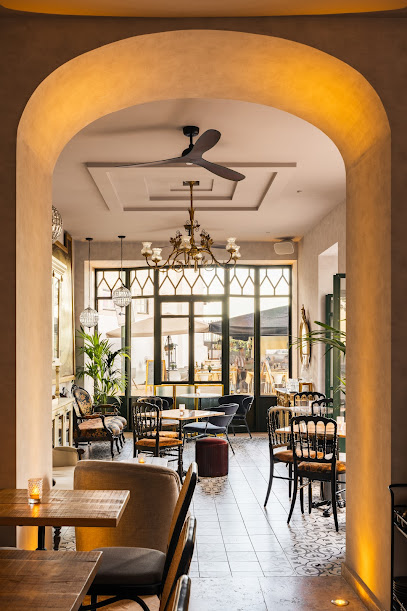
Local Phrases
-
- HelloOlá
[oh-lah] - GoodbyeAdeus
[ah-deh-oosh] - YesSim
[seem] - NoNão
[now] - Please/You're welcomePor favor/De nada
[por fah-vohr/deh nah-dah] - Thank youObrigado/Obrigada
[oh-bree-gah-doo/oh-bree-gah-dah] - Excuse me/SorryCom licença/Desculpe
[kohm lee-sehn-sah/deh-skool-peh] - How are you?Como está?
[koh-moo ehs-tah] - Fine. And you?Bem. E você?
[behn/eh voh-seh] - Do you speak English?Fala inglês?
[fah-lah een-glehsh] - I don't understandNão entendo
[now ehn-tehn-doo]
- HelloOlá
-
- I'd like to see the menu, pleaseGostaria de ver o menu, por favor
[goh-stah-ree-ah deh vehr oo meh-noo/por fah-vohr] - I don't eat meatNão como carne
[now koh-moo kahr-neh] - Cheers!Saúde!
[sow-deh] - I would like to pay, pleaseGostaria de pagar, por favor
[goh-stah-ree-ah deh pah-gahr/por fah-vohr]
- I'd like to see the menu, pleaseGostaria de ver o menu, por favor
-
- Help!Ajuda!
[ah-jooh-dah] - Go away!Vai embora!
[vah-ee ehn-boh-rah] - Call the Police!Chama a Polícia!
[shah-mah ah poh-lee-see-ah] - Call a doctor!Chama um médico!
[shah-mah oong meh-dee-koo] - I'm lostEstou perdido
[ehs-toh pehr-dee-doo] - I'm illEstou doente
[ehs-toh doo-ehn-teh]
- Help!Ajuda!
-
- I'd like to buy...Gostaria de comprar...
[goh-stah-ree-ah deh kohm-prahr] - I'm just lookingEstou só a ver
[ehs-toh soh ah vehr] - How much is it?Quanto custa?
[kwahn-too koosh-tah] - That's too expensiveIsso é muito caro
[ee-soh eh moo-ee-toh kah-roo] - Can you lower the price?Pode baixar o preço?
[poh-deh bahy-shahr oo preh-soo]
- I'd like to buy...Gostaria de comprar...
-
- What time is it?Que horas são?
[keh oh-rahz sow] - It's one o'clockÉ uma hora
[eh oo-mah oh-rah] - Half past (10)Meia hora (10)
[meh-yah oh-rah (dohs-eez)] - MorningManhã
[mah-nyah] - AfternoonTarde
[tahr-deh] - EveningNoite
[noy-teh] - YesterdayOntem
[ohn-tehm] - TodayHoje
[oh-zheh] - TomorrowAmanhã
[ah-mah-nyah] - 1Um
[oom] - 2Dois
[doh-eesh] - 3Três
[trehs] - 4Quatro
[kwah-troo] - 5Cinco
[seen-koo] - 6Seis
[saysh] - 7Sete
[seh-teh] - 8Oito
[oy-toh] - 9Nove
[noh-veh] - 10Dez
[dehsh]
- What time is it?Que horas são?
-
- Where's a/the...?Onde fica...?
[ohn-deh fee-kah] - What's the address?Qual é o endereço?
[kwahl eh oo ehn-deh-reh-soo] - Can you show me (on the map)?Pode mostrar-me (no mapa)?
[poh-deh moh-strahr-meh/noo mah-pah] - When's the next (bus)?Quando é o próximo (autocarro)?
[kwahn-doo eh oo proh-ssee-moh/ow-toh-kah-roo] - A ticket (to ....)Um bilhete (para ....)
[oom bee-lye-teh/par-ah]
- Where's a/the...?Onde fica...?
History of Alfama
-
Alfama is one of the oldest districts in Lisbon, with its origins dating back to the Moorish period in the 8th century. The name 'Alfama' is derived from the Arabic word 'al-hamma', meaning 'the baths'. This era saw the area develop into a vibrant community characterized by narrow streets and small houses, reflecting the Moorish architectural influence.
-
In 1147, during the Reconquista, Lisbon was captured by Christian forces led by Afonso I of Portugal. Alfama, being a strategic location, remained a residential area for the lower classes and became a center for the Christian community. The architecture began to reflect Romanesque and Gothic styles as churches and monasteries were built, with the Sé de Lisboa (Lisbon Cathedral) being a prominent example.
-
During the 15th and 16th centuries, Alfama flourished as Lisbon became a hub for maritime exploration. The district was home to many sailors and traders who contributed to the wealth of the city through the spice trade and other goods. This period also saw the establishment of Fado music, which would later become a defining cultural element of Alfama.
-
On November 1, 1755, a catastrophic earthquake struck Lisbon, causing widespread destruction. Alfama, with its narrow, labyrinthine streets and older structures, suffered significant damage. However, many of its historic buildings survived, and the district retained its character, becoming a symbol of resilience in the face of disaster.
-
Fado, the soulful music genre characterized by melancholic melodies and lyrics, emerged in the early 19th century within the working-class neighborhoods of Alfama. It reflects the themes of longing and nostalgia, resonating deeply with the local culture. Fado houses began to proliferate, and the neighborhood became a central hub for this unique musical expression, attracting both locals and tourists.
-
Today, Alfama is a blend of historical charm and modern life. The district has undergone gentrification, attracting artists, musicians, and visitors seeking to immerse themselves in its rich history. Despite changes, it retains its authenticity, with traditional festivals, Fado performances, and local artisans contributing to the vibrant culture that continues to define Alfama as a crucial part of Lisbon's identity.
Alfama Essentials
-
Alfama is centrally located in Lisbon and can be easily accessed from various neighborhoods. From Baixa, take Tram 28 or a 15-minute walk. From Bairro Alto, you can walk downhill (approximately 20 minutes) or take Tram 12. If arriving from the airport, take the Aerobus to Praça do Comércio and then walk or use Tram 28 to reach Alfama.
-
Alfama is best explored on foot due to its narrow, winding streets. However, Tram 28 is a popular option for a scenic ride through the neighborhood. Taxis and ridesharing services are also available. For those wishing to cycle, bike rentals are offered in nearby areas, but be cautious of the steep hills.
-
Alfama is generally safe for tourists, but standard precautions should be taken. Be wary of pickpockets, especially in crowded areas and on public transport. Avoid less frequented alleyways at night. While crime rates are low, areas around the Fado bars can get crowded and draw attention from petty thieves.
-
In case of an emergency, dial 112 for police, fire, or medical assistance. The nearest hospital is Hospital de Santa Maria, and pharmacies are widely available throughout Alfama. It is advisable to have travel insurance that covers emergencies.
-
Fashion: Do wear comfortable shoes for walking. Avoid overly casual attire when visiting churches. Religion: Do respect local customs, especially in religious sites. Don't take photos in places where it is prohibited. Public Transport: Do validate your ticket before boarding. Don't be loud or disruptive. Greetings: Do greet locals with a friendly 'Bom Dia' (Good Morning). Don't forget to say 'Obrigado' (Thank You). Eating & Drinking: Do try traditional dishes like bacalhau and sample local wines. Don't eat while walking, as it's considered impolite.
-
To experience Alfama like a local, visit the local markets such as Mercado de Santa Clara, especially on Tuesdays and Saturdays. Engage with locals in Fado houses, where you can enjoy traditional music and cuisine. Try to attend a Fado performance to understand the heart of Alfama's culture. Don't miss the Miradouro de Santa Luzia for stunning views of the Tagus River.
Nearby Cities to Alfama
-
Things To Do in Sintra
-
Things To Do in Cascais
-
Things To Do in Setúbal
-
Things To Do in Caldas da Rainha
-
Things To Do in Évora
-
Things To Do in Viseu
-
Things To Do in Tomar
-
Things To Do in Coimbra
-
Things To Do in Badajoz
-
Things To Do in Faro
-
Things To Do in Aveiro
-
Things To Do in Huelva
-
Things To Do in Porto
-
Things To Do in Lamego
-
Things To Do in Vila Real













